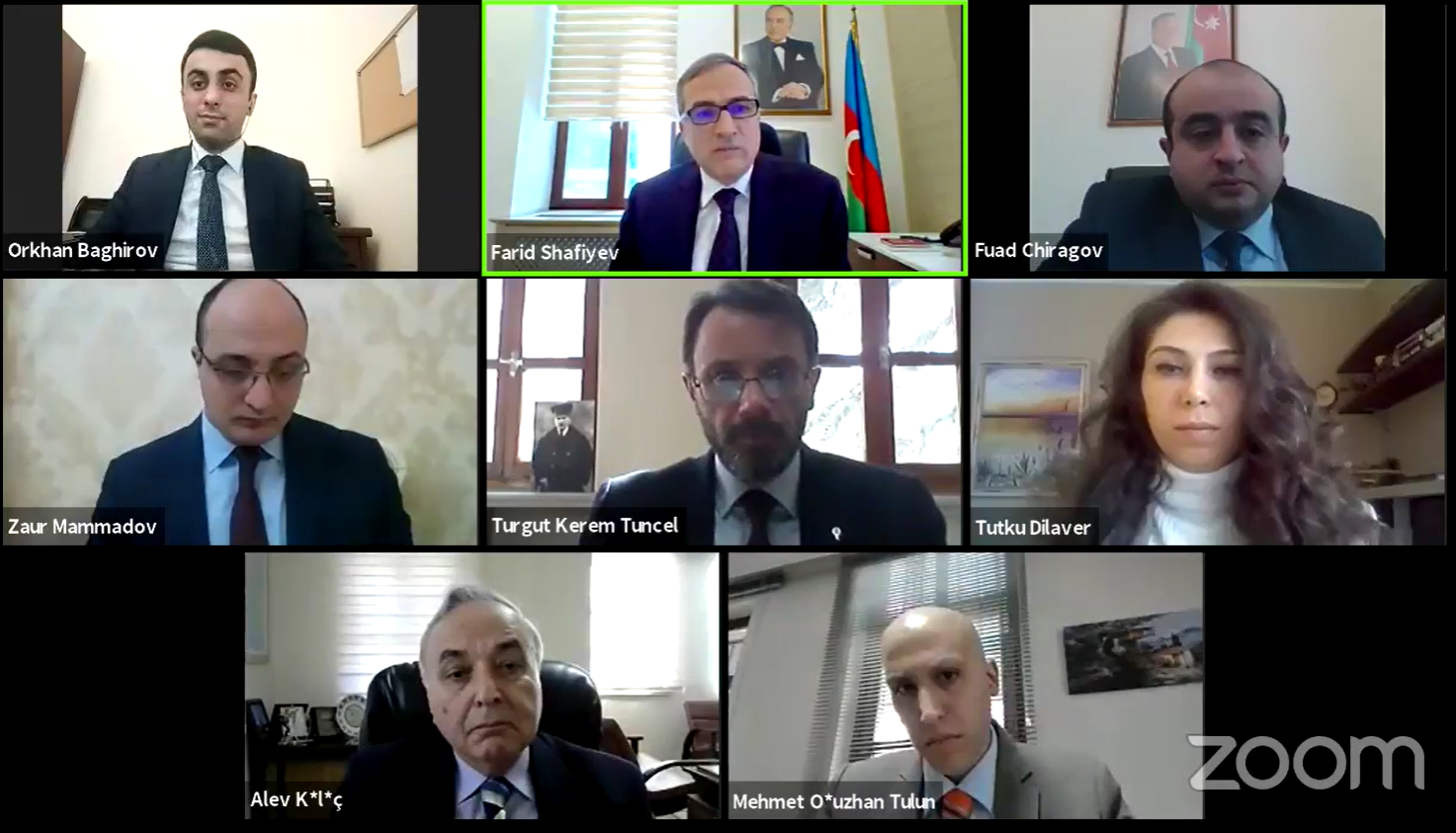A webinar titled "Post-war South Caucasus" was organized by the Center of Analysis of International Relations (AIR) and the Center for Eurasian Studies (AVIM). AIR Center’s Chairman Farid Shafiyev, who moderated the webinar, mentioned that the event was held on the eve of the anniversary of the Khojaly genocide, which took place 29 years ago. Mentioning that despite the new geopolitical situation in the region after the 44-day war that began in September last year, he said that the consequences of 30 years of occupation, including genocide and other crimes against the Azerbaijani people during the First Karabakh War, remain relevant.
Farid Shafiyev highlighted Turkey's political and moral support to Azerbaijan during the 44-day war. He said that although this conflict was not an obstacle for Azerbaijan’s regional projects, Armenia was the state that was deprived of the benefits of such projects. He also touched upon the fact that if the previously occupied lands were genuinely valuable for Armenians, they would not have caused such destruction to them.
Speaking later, the director of AVIM, Alev Kilic, congratulated Azerbaijan on its victory, noting that the war was an important turning point for Azerbaijan and a rightful victory. He said that Azerbaijan and Turkey have proved that the concept of "two states, one nation" has gained great meaning not only in words but also in deeds: "This war has removed the obstacles to the geopolitical importance of the Turkic world. In this sense, the Azerbaijani-Turkish cooperation has gained even more importance."
Fuad Chiragov, head of a department at the AIR Center, said that ever since the November 10 ceasefire agreement, everyone's eyes are on Armenia's domestic policy. According to him, Armenia's internal political struggle is not only between the current government and the opposition but also between the country's past and its future.
Expert at AVIM Turgut Tuncel stressed that the main direction in the new geopolitical situation in the South Caucasus after the Second Karabakh War is the opening of economic ties. According to him, this opens up new corridor opportunities. He stressed the importance of the South Caucasus for the development of the North-South, South-West and East-West corridors. The expert added that these projects have created a new opportunity for Armenia as well.
Leading advisor at the AIR Center, Orkhan Bagirov, said that the process of rehabilitation in the liberated territories is important not only for the development of Azerbaijan but also for the whole region. The most important role is played by Turkish companies. In the future, more countries that supported Azerbaijan during the war will join the process of restoration of these lands.
Expert at AVIM Oguzhan Tulun spoke about the future of relations between Armenia and Turkey. According to him, if Armenia learns from the past, Turkey will want to normalize relations with it. However, Armenia currently making claims against Turkish lands is not a promising sign.
Zaur Mammadov, a teacher at the Academy of Public Administration under the President of the Republic of Azerbaijan and a political scientist, said that the recent developments around the Armenian-Azerbaijani conflict have further strengthened Azerbaijan's cooperation with Turkey. According to him, Turkey already has an influence in the region and new projects will be implemented in the region soon.
Speaking about the proposals to establish a six-party platform in the region after the war, AVIM expert Tutgu Dilaver said that the initiative was aimed at making peace in the region more sustainable: "All countries must act in coordination to make such a platform work." The expert said that Armenia felt very comfortable within the Minsk Group. After the politicized approach of some member states of the Minsk Group to the conflict, it has already begun to affect the activities of the group.




